Where did everybody from the G20 'ghost town' go?
- Published
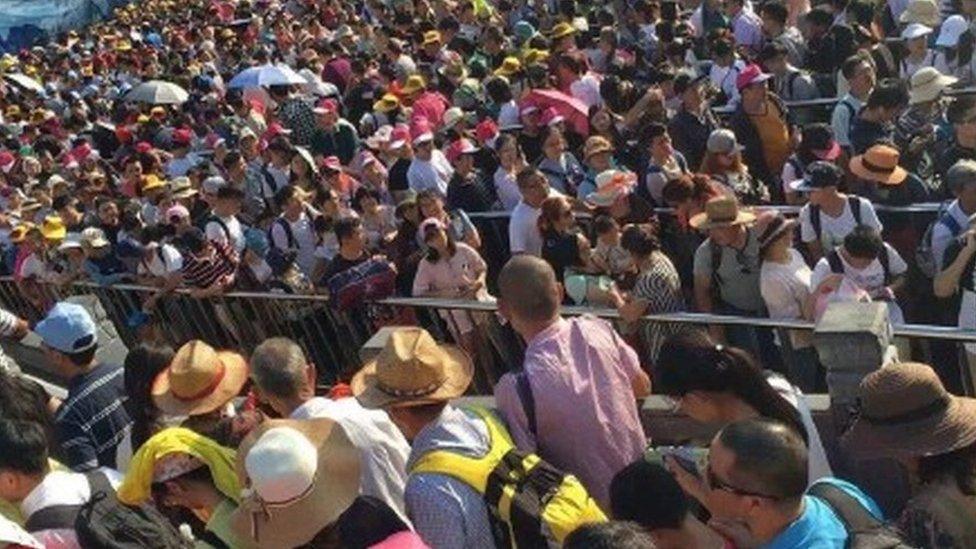
Huge queues of Hangzhou residents built up at the Yellow Mountain
When the most powerful people in the world arrive en masse to your hometown, there's bound to be disruption. But things got taken to a whole other level this week when China hosted a two-day summit of the G20.
Most of the nine million residents of the city of Hangzhou were actively encouraged to get out of town as security was ramped up. Factories were closed so the visiting world leaders could breathe less polluted air. Car travel in Hangzhou was restricted by registration numbers (even number registrations were allowed to travel one day, odd on the others days). Residents were given a paid week of work to gently prod them into leaving.
The result, as the BBC and other media organisations reported, was that outside the summit bubble Hangzhou was largely turned into a ghost town.
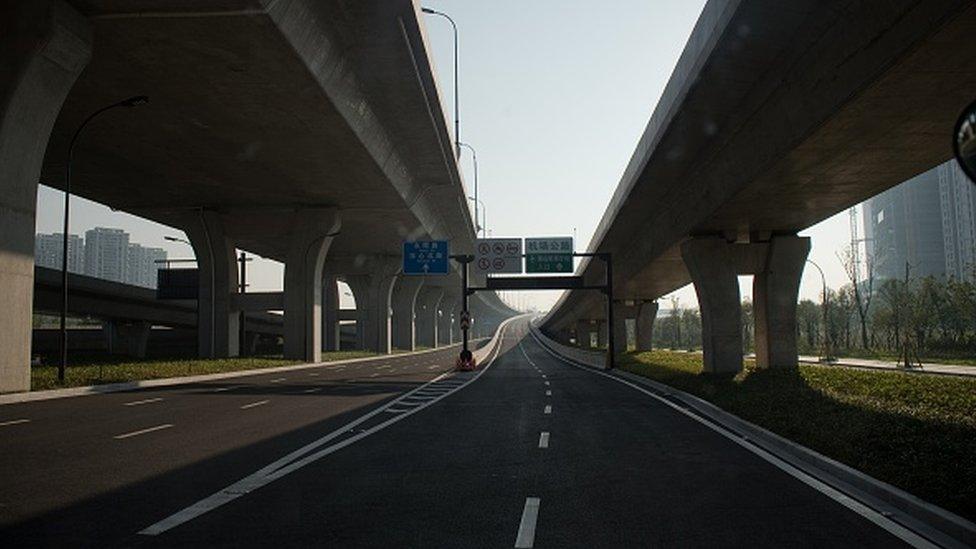
So where did all those people go?
If the extraordinary scenes captured on social media are anything to go by, the city's residents seemed to have taken full advantage of the tourist vouchers that they were offered by China's government. Reports say that 10 billion Yuan ($1.5 billion), external worth of vouchers to visit tourist sites were distributed.
One place that experienced a huge influx of Hangzhou residents was the scenic Yellow Mountain, external, which is around 200km away. Photos posted online show huge queues at the entrance to the cable car up to the mountain, and massive crowds in the surrounding streets.
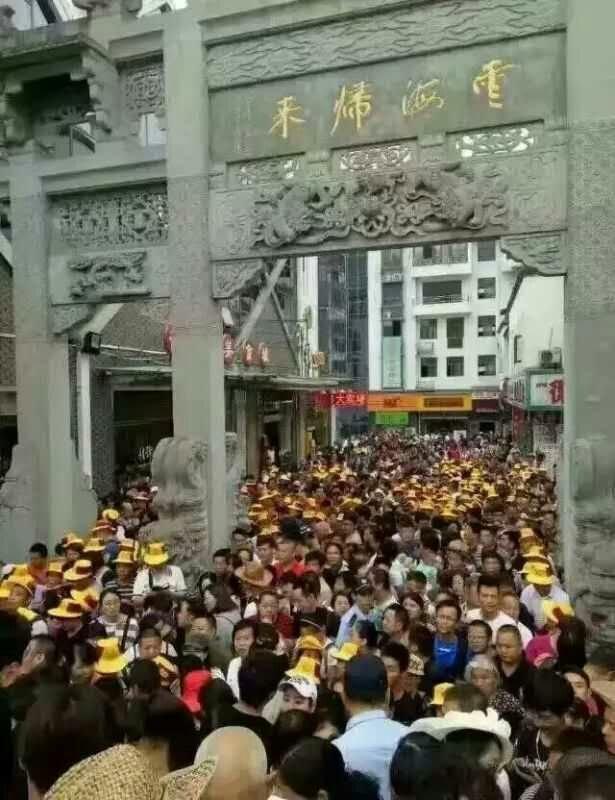

Hangzhou resident, Ms Gao Jinmei, who drove three hours to the Yellow Mountain, told BBC Trending that there was a special entrance at the mountain just for Hangzhou residents.
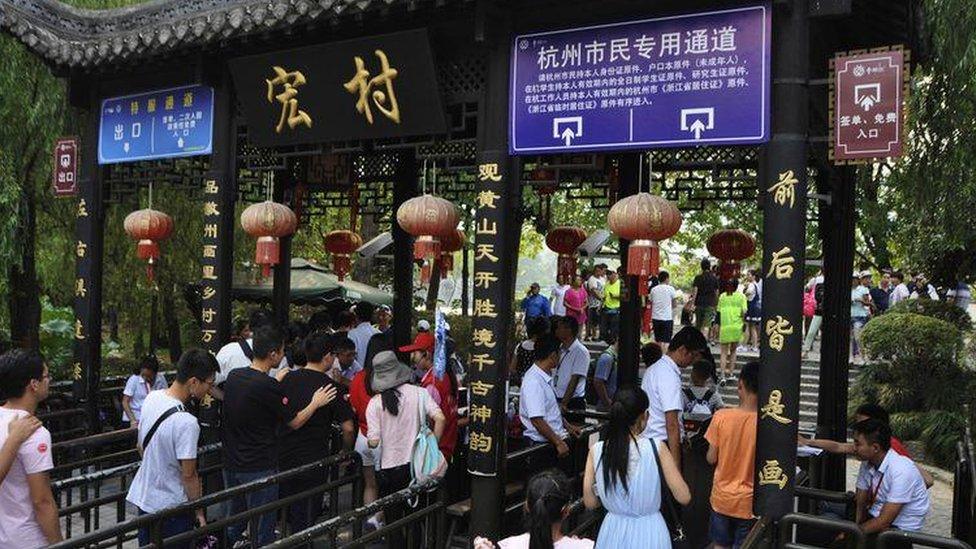
One entrance at the mountain was set aside just for Hangzhou residents
And all those visitors needed somewhere to stay. "Normally September is quiet season in the Yellow Mountain, but because of the G20, the hotels charged tourists the same as peak season," said Ms Gao. She said it was impossible to get a room in one of the hotels at the top of the mountains without an advance booking. Many people stayed at campsites, shared dormitories and in some cases camp beds in corridors.

The authorities of Yellow Mountain tweeted that they received 193,233 visitors, 157,688 from Hangzhou in the the first five days of September
Users of the Chinese social media platform Sina Weibo had plenty to say. Someone called Big Ear Rabbit wrote that the Anhui province, where the Yellow Mountain is located, had taken on a different appearance due to the crowds: "It's as if the G20 was held at Yellow Mountain! The streets are full of cars from Hangzhou."
Another user called Leonardore said people from Anhui province had "made a huge sacrifice for the G20" in accommodating the Hangzhou residents.
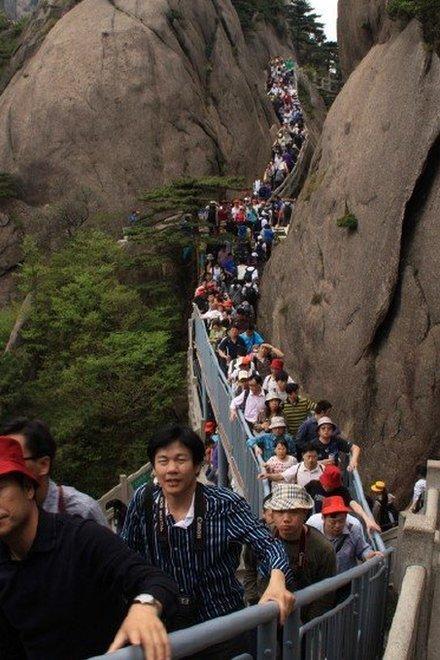
Walkways on the mountain were also jammed
Others took to the messaging app WeChat to share images and make comments about the mass influx of Hangzhou residents to the Yellow Mountain.
"I've heard that people charter cars, ships and planes, I've never thought that Hangzhou people could charter the whole Yellow Mountain. How pioneering! It's amazing!" one Huangshan resident, named Zhenshuiwuxiang, commented sarcastically.
A user called Behind Smile commented that the money invested in the free visitor vouchers could have been better spent: "It's not Hangzhou locals who are crazy; it's the super-rich government.. The roads that need to be repaired are not."
Some feared that the large crowds at Yellow Mountain were dangerous. Yimo wrote, "Sightseeing is a happy thing to do, but safety is more important." User Youyou agreed: "Pay more attention to safety. Do not let a stampede tragedy happen."
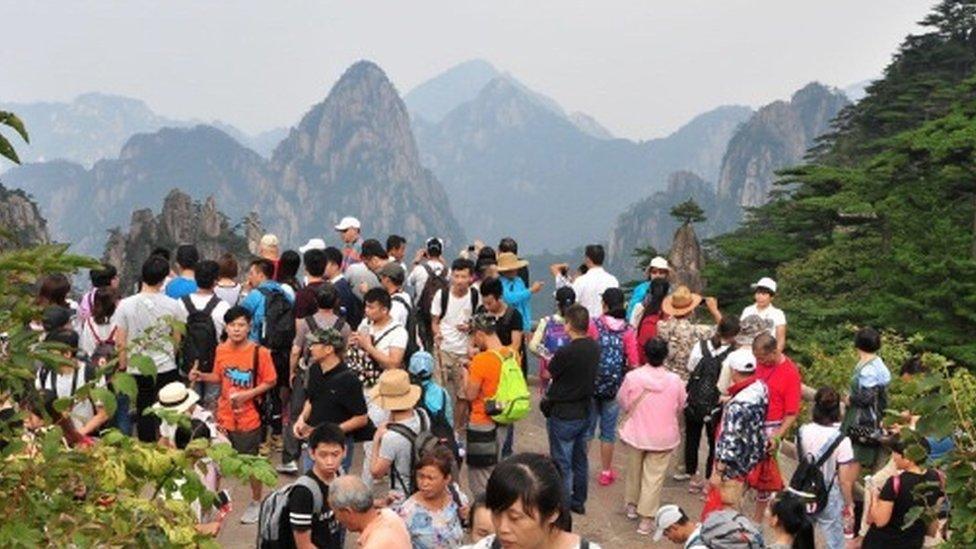
Meanwhile, back in Hangzhou, residents who volunteered to work at the G20 summit also had the chance to take advantage of the peace and quiet.
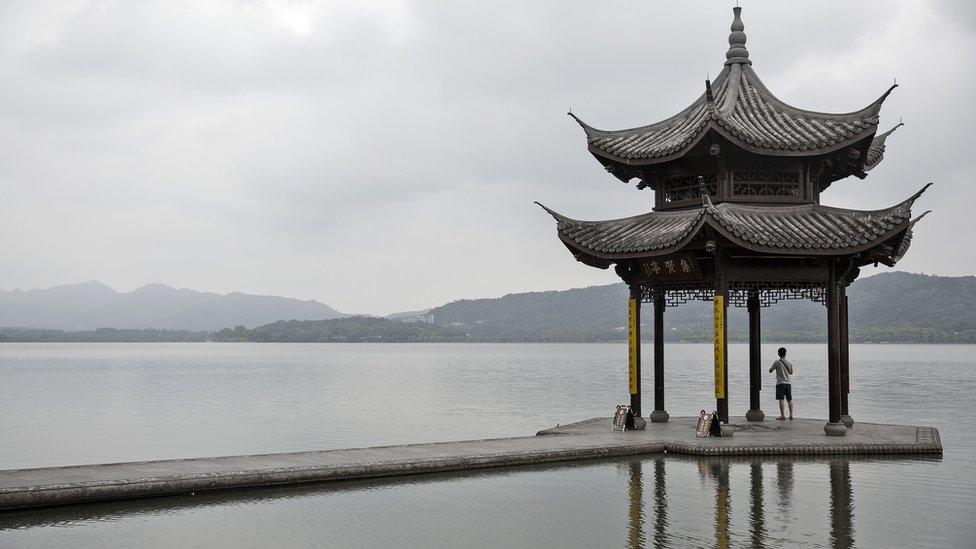
Glad you're not here. Hangzhou's West Lake without the usual hordes of visitors
One volunteer security guard called Sun Yan told BBC Trending that the empty streets made a refreshing change, "There are not many cars on the road. Some local shops are closed. Supermarkets offered competitive deals to attract local residents. The famous West Lake, external is normally packed with visitors, but during the G20, you can truly enjoy it."
Blog by Ruhua Xianyu
NEXT STORY: Bollywood legend's advice to granddaughters divides opinion

Amitabh Bachchan pens open letter urging "all of India's granddaughters" to overcome sexism. But not everyone's a fan. READ MORE
You can follow BBC Trending on Twitter @BBCtrending, external, and find us on Facebook, external. All our stories are at bbc.com/trending.